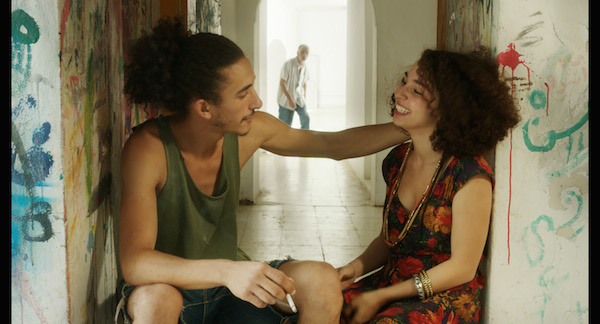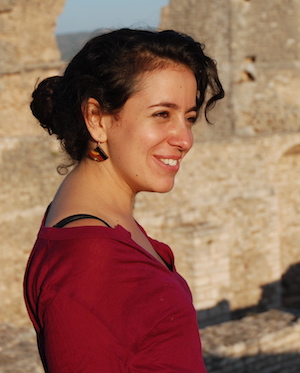TRIBECA FILM FESTIVAL REVIEW: “AS I OPEN MY EYES”

BY PUMA PERL | Vivacious, rebellious, 18-year-old Farah (Baya Medhaffer) loves rock and roll, hates convention, and is a member of an underground band — all of which brings about conflict with her mother, who is insistent that she forget about music and go to medical school. This description sounds like any coming of age story, but there is a catch. The film is set on the eve of Tunisia’s Jasmine Revolution, and the young people, fueled by creative energy and disenchantment with the authoritarian government, are more likely to wind up beaten and imprisoned than losing their driving privileges.
“I decided to place the mother/daughter relationship in the center of the film. It was a way of demonstrating that the explosiveness and idealism of the younger generation modernized the elder one,” explained writer and director Leyla Bouzid at the Q&A that followed the film’s first Tribeca Film Festival screening. Although the script is not strictly autobiographical, it does include some of her life experiences. Under the dictatorship of Ben Ali, she and some friends ran a cinema club, and, like the film, one trusted compadre turned out to be a police agent. In her discussion, Bouzid exhibited some similarities to her heroine, but was careful to explain that in some ways she was the opposite of her. Farah is fearless, with no regard for limits, whereas Bouzid was extremely conscious of limits and consequences.
Central to the film is the music, not only for its narrative component, but also for the intensity of Ghassen Amami’s lyrics and the beauty of Iraqi musician Khyam Allami’s compositions. Medhaffer, a newcomer to the screen, is a riveting performer and has excellent chemistry with her love interest, singer-performer Benali, a fellow band member. Singer Ghalia Ben Ali plays the part of her mother, who is initially seen through the daughter’s eyes as rigid and oppressive. As the story unfolds, we begin to understand her fierce love and devotion to her daughter, and the ways that her past drive her to stop at nothing to protect her. Again, the music is elemental, playing a role in their communication and in their shared healing processes.

The close examinations of the familial relationships, as well as the friendships, provide a normality that makes the violent historical events even more shocking. Farah’s bold nature and free spirit are simultaneously admired and judged, even by her nonconformist boyfriend, as she breaks the gender rules that govern women’s behavior.
The film atmospherically focuses in on a specific moment in the history of an oppressive, authoritarian government, often utilizing residents as extras in the smoky clubs and dark streets. There continues to be a battle against the limits in Tunisia, but the fact that the film has received funding from the government, and has been shown in festivals there, can only be considered a good sign for the future.
Director: Leyla Bouzid. Screenplay: Leyla Bouzid & Marie-Sophie Chambon. Runtime: 123 minutes. Thurs., Apr. 21, 6:45pm at Bow Tie Cinemas Chelsea (260 W. 23rd St., btw. Seventh & Eighth Aves.). Tickets: $20 plus $3.50 phone & web processing fee. Visit tribecafilm.com or call 646-502-5296.






























